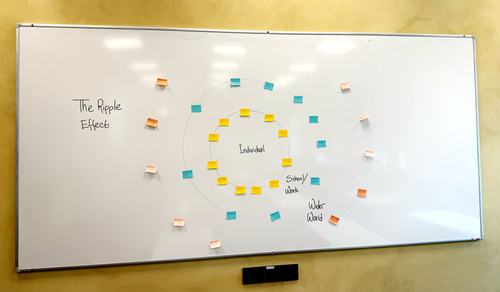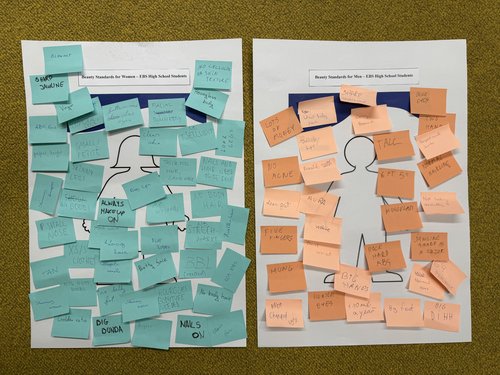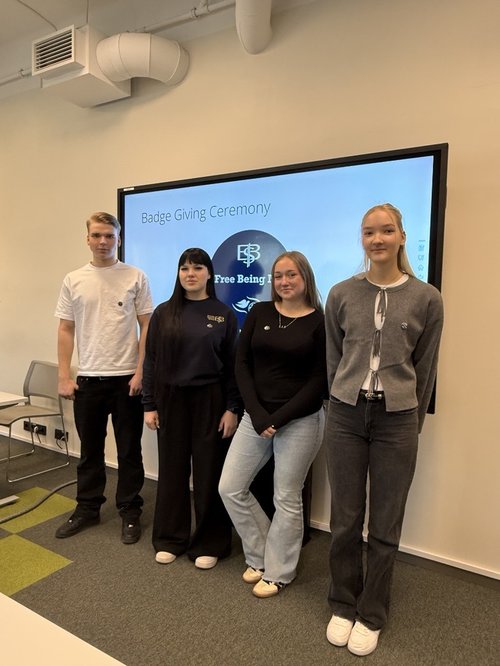FBM was recently introduced as a pioneering pilot at EBS High School, part of the Estonian Business School framework. The sessions revealed both the critical need for body image and media literacy education among Estonian students and valuable insights for adapting FBM materials to the local context.
A Research-Driven Implementation

The pilot was facilitated by Mehruba Haque, a PhD researcher specialising in body image in early adolescent girls. Bringing academic expertise directly into the classroom, she guided students through FBM’s core concepts — challenging appearance pressures, recognising harmful “body talk,” and building confidence in their own unique selves.
“These students urgently need media literacy education,” said Haque. “They also need to learn what body talk is and how to respond to it constructively. I strongly feel that this type of education should be compulsory – it is missing in schools.”
Impact on Students

During the sessions, FBM’s interactive approach inspired authentic engagement. Students responded best when the programme was delivered through culturally relevant discussion formats rather than traditional role-playing. In open conversations, they reflected on everyday experiences with appearance pressures, treating each other’s perspectives, sometimes very distinct from one another, as opportunities for learning.
“I genuinely wanted to create an open and safe space, and I believe I succeeded in doing that,” Haque shared. “Students opened up and explained how they felt, treating unexpected responses as valuable learning moments.”
Adapting Free Being Me for Estonia

One of FBM’s greatest strengths is its flexibility, and the Estonian pilot showed the importance of cultural adaptation. Students connected most when discussions reflected modern media realities such as social media influencers, rather than traditional advertising. They also expressed curiosity about inclusive marketing practices, which linked directly to their business-focused education. At the same time, small group discussions proved far more effective than role-playing, while the need for region-specific and culturally relevant materials emerged as a clear priority for long-term impact.
Building a Foundation for Expansion
The pilot confirmed that Estonian high school students are ready and eager to engage with body confidence education when it is adapted to their cultural realities. By connecting body confidence to both personal development and professional futures, FBM provided a safe and empowering learning experience.
Haque highlighted the wider impact: “I see great potential for this curriculum in Estonia. The programme addresses a critical gap in education – students do not recognise body talk or its harmful effects and often engage in it unknowingly.”
Read more about the Dove Self-Esteem Project here.
